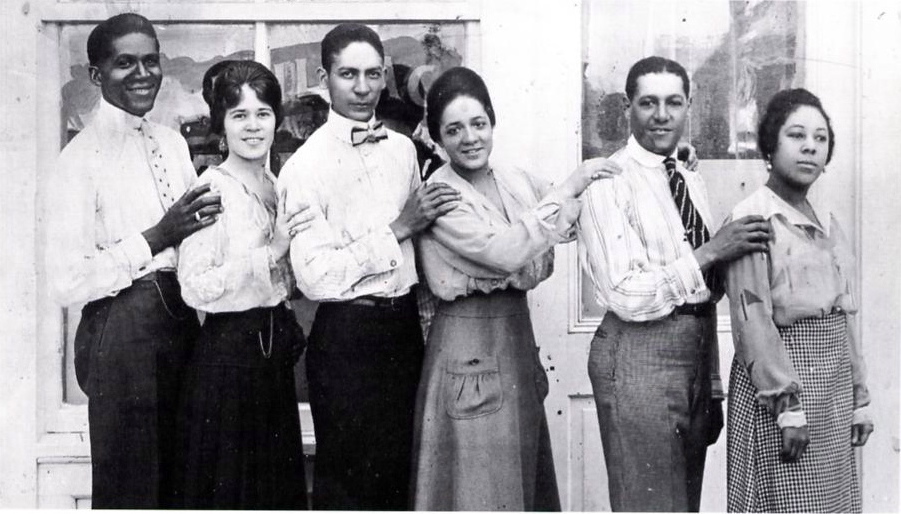As with other forms of bands in the US, black marching bands formed as part of the military with the earliest musicians being fifers, drummers, trumpeters and pipers in Colonial-era militias. Historians believe that nearly 5,000 Blacks were integrated in the pre-revolutionary war military as musicians, as many units banned black, mulattos, or native Americans in the military from bearing arms. Many also say that the military band members of the 19th century received most of their training and instruments during the War of 1812 with many all-black brass bands arising after the war in cities such as New Orleans, Philadelphia, and New York. This included a band led by Francis "Frank" Johnson who incorporated keyed and valved brass instruments to become one of the earliest, most popular brass bands in the country.
By 1861, at the beginning of the Civil War, brass instruments became a mainstay in Military bands. In the Union Army, all Black regimens acquired instruments and each had its own band which helped recruit through parades and public appearances. By the end of the Civil War, there were 185,000 black men inducted into the army as "United States Colored Troops". Many would stay on after the war to form the first black units, while others went on to play in civilian bands. Marching Bands had become integrated into the American Society by the late 19th century, including the first permanent black Minstrel troupes with one led by W.C. Handy. These troupes would attract crowds to their shows with an elaborate parade lead by a four horse carriage and a drum major. But these were no ordinary drum majors keeping time for the band, they were performers, artists with a baton. These black Minstrel groups helped disseminate African-American styles of music and dance across the country.
Known as the "Golden Age of the American Brass Band, 1880-1910 saw approximately 10,000 bands in the US, with many of them being Marching Bands. This was also the case in the African-American Community, especially in New Orleans, where black bands helped to raise money for numerous causes. Additionally, there was a rise in rural, self-taught bands that were strongly rooted in gospel and secular music- they basically replaced the voice using their instruments. Much of the music of these bands was characterized by offbeat phasing, polyrhythms, melodies and countermelody, syncopation and call-and-response patterns; all of which are hallmarks of other forms of African-American vernacular music. By the turn of the century, these bands were firmly established in New Orleans, the birthplace of jazz and the blues.
During World War I, many black military units again had military bands, with one of the most famous being the "Harlem Hellfighters" who played in Europe, specifically in the Theatre des Champs-Elysess in Paris. Upon their return to the US in 1919, they marched down Fifth Avenue in New York and are written to have been "the best military band in the world." Many of these musicians went on to join the faculty of the budding music departments of black college and universities. These Universities came about in 1862 after the Land-Grant Act (Morrill Act) enacted by Congress provided each state 30,000 acres of federal lands that could be sold in order to finance schools for African-Americans to teach primarily agriculture and mechanical arts. The second Land Grant Act in 1890 specifically called for equal distribution of higher education fund which lead to 17 black land-grant colleges being established in the Southern and border states between 1880 and 1899. Bands were initially formed at these historically black colleges to help raise money. It is thought that the earliest HBCU band started at Tuskegee Normal School (now Tuskegee University), the Tuskegee Normal School Brass Band. Other early black collegiate bands included Alabama State, Florida A&M, and Kentucky State.
-1361748327.jpg)





















 similar to what you get in Latin America
similar to what you get in Latin America . Jim Crow came through
. Jim Crow came through and the rest is history.
and the rest is history.










